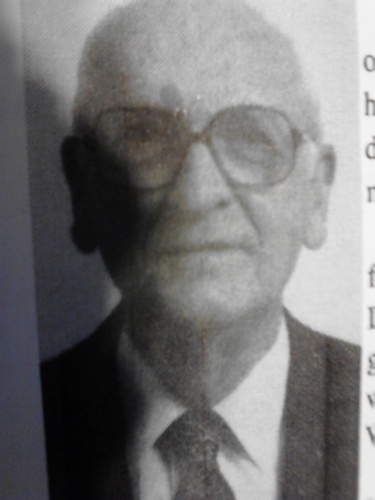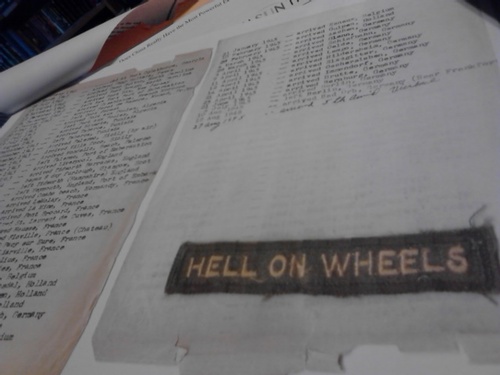Most of you probably don't know Paul Whitten. He passed away last month, but not before he left us a small piece of history. His daughter provided his personal memoirs in a book titled To Beulah and Back about his role in the bloodiest battle in America's history: the Battle of the Bulge.
Whitten was born on a small farm in Mississippi. He struggled with a speech impediment, but that didn't stop him from valiantly serving in the 2nd Armored Division, trained by Gen. George Patton, who claimed they were "Hell on Wheels," a name the division still uses today. He and his division joined the war in Morocco, fought their way across Algeria to Tunisia. Then he fought the German army in Sicily. He and his fellow soldiers landed in Normandy after D-Day, and defeated the Germans at Carentan, France.
As his unit raced across France, he wrote about all he saw, from the ubiquitous "Kilroy was here" graffiti to driving through apple orchards to heading past Waterloo. He even described an amusing moment where a grateful French family raced over to profusely thank him, while he was in the middle of using a latrine, clearly embarrassed.
Whitten also described the horrors of the war in Europe. As he, the LTC, and a driver named "Snake" Hodges drove in a jeep loaded with sandbags on the floor (a precaution against landmines), he noted "We saw the results of the battle that had taken place a day or two before. Dead soldiers were lying alongside the road. You never forget the cold, glazed, icy stare of dead men. In places, they were stacked like cordwood, awaiting....trucks to haul them off. In some places we had to drive around some dead person sprawled on the road. This was an awesome sight for this Mississippi farm boy to see - a sight etched in my memory that I will never forget."
The brave Mississippi farm boy nearly joined them, as his uncovered position was raked by 88mm shells near St. Lo. Though Whitten downplays his role in that fighting, he was given a Bronze Star Medal.
But that was a mere prelude to the events of December 16-26. Stanley Weintraub's book 11 Days in December lists American casualties as 100,000, making it the bloodiest battle in U.S. history. Whitten and the 2nd Armored Division raced 100 miles in less than a day to join the fighting to stem the onslaught of 200,000 of Hitler's best soldiers and rescue besieged Americans. Fellow soldiers from his group lost fingers and toes to frostbite, but they smashed the 2nd Panzer Division.
During the battle, he and several soldiers spent nights in a Belgian home. The grateful family cooked their rations up to taste like fresh eggs and bacon. Even after the war, he continued to correspond with the Deville family.
Whitten wrote of a Christmas Day present of an end to the blizzard which prevented Allied air attacks. Hundreds of planes proceeded to destroy enemy positions. Eventually, he and his fellow members of the Ninth Army pushed down to meet up with General George Patton's Army, catching the German troops in a vise, ending the final Nazi offensive.
Whitten would go on to be one of the first American soldiers to enter Berlin. He came home to get married, go to college, and even graduate school. He even served several years as the Standing Chairman on an international committee on Nuclear, Biological and Chemical Defense during the Cold War, before retiring to Anniston, Alabama.
Though Whitten died just shy of the 70th Anniversary of the Battle of the Bulge, his daughter, an English professor and colleague of mine, brought over a scan of Whitten's World War II service. It's another reminder of the sacrifice that he and so many other "ordinary" Americans made to earn the moniker "The Greatest Generation."
John A. Tures is a professor of political science at LaGrange College in LaGrange, Ga. He can be reached at jtures@lagrange.edu.


